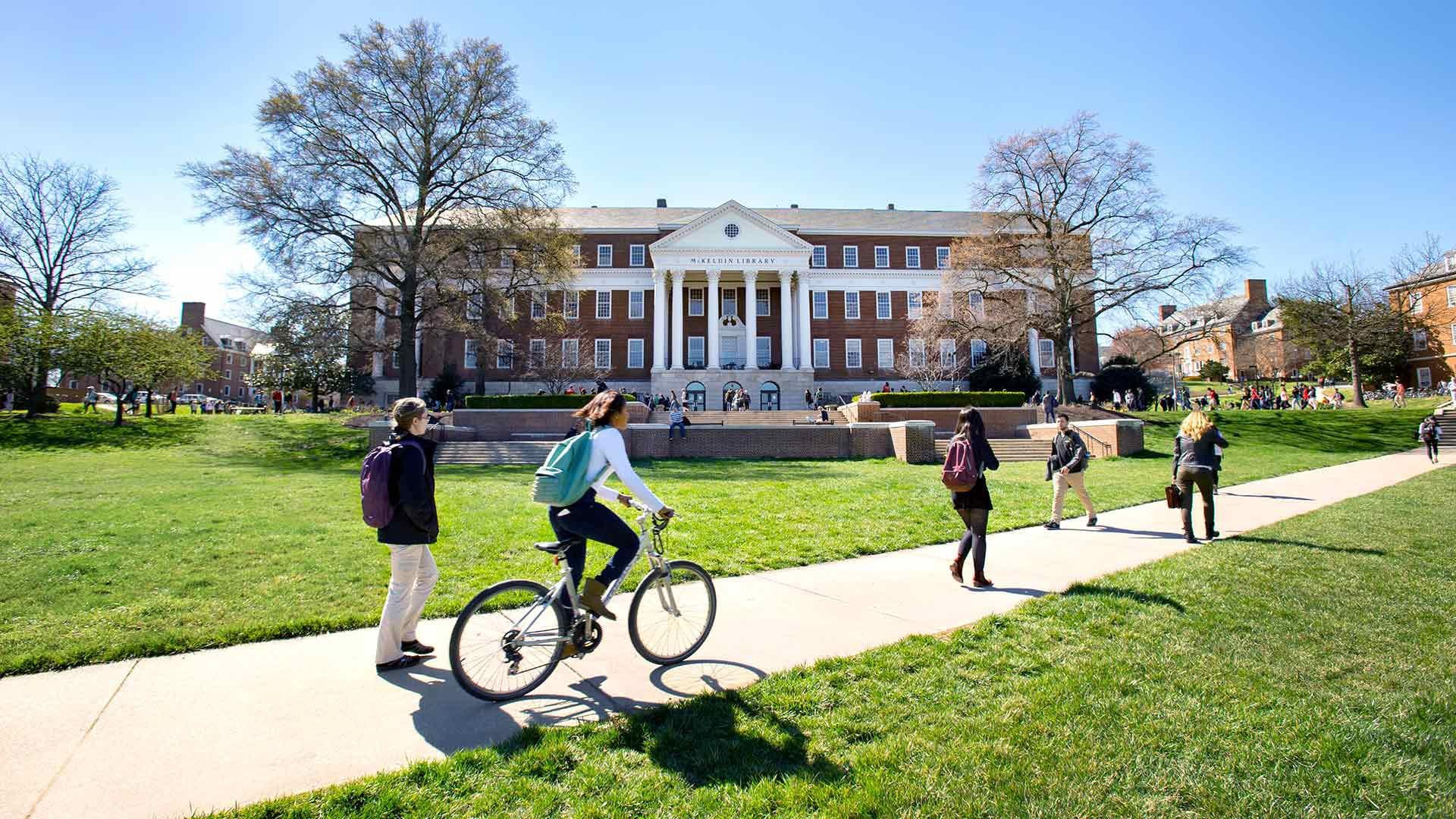
Sustainable Transportation
Bicycling, walking, and public transit reduce emissions and traffic compared to car transport. Choosing low impact transportation preserves green space often displaced by parking and roads.
We can ensure an accessible, healthy, active, and equitable transportation system through planning, infrastructure, programs, policies, and practices.
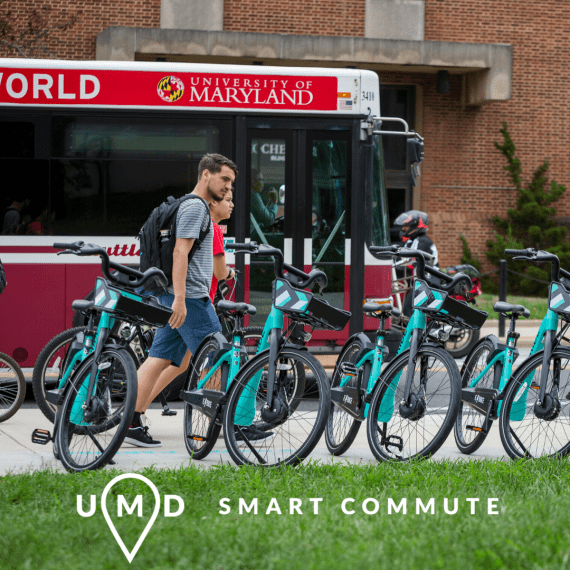
Sustainable Transportation Options
Save time, money, and resources while getting where you need to go
Carpool
Carpooling is an efficient way to travel to campus from areas outside of College Park, and saves you money on gas and vehicle maintenance. Use the Smart Commute digital platform to connect with potential university ridesharing partners on your schedule and route. Registered carpoolers receive a 50% discount on an annual permit.
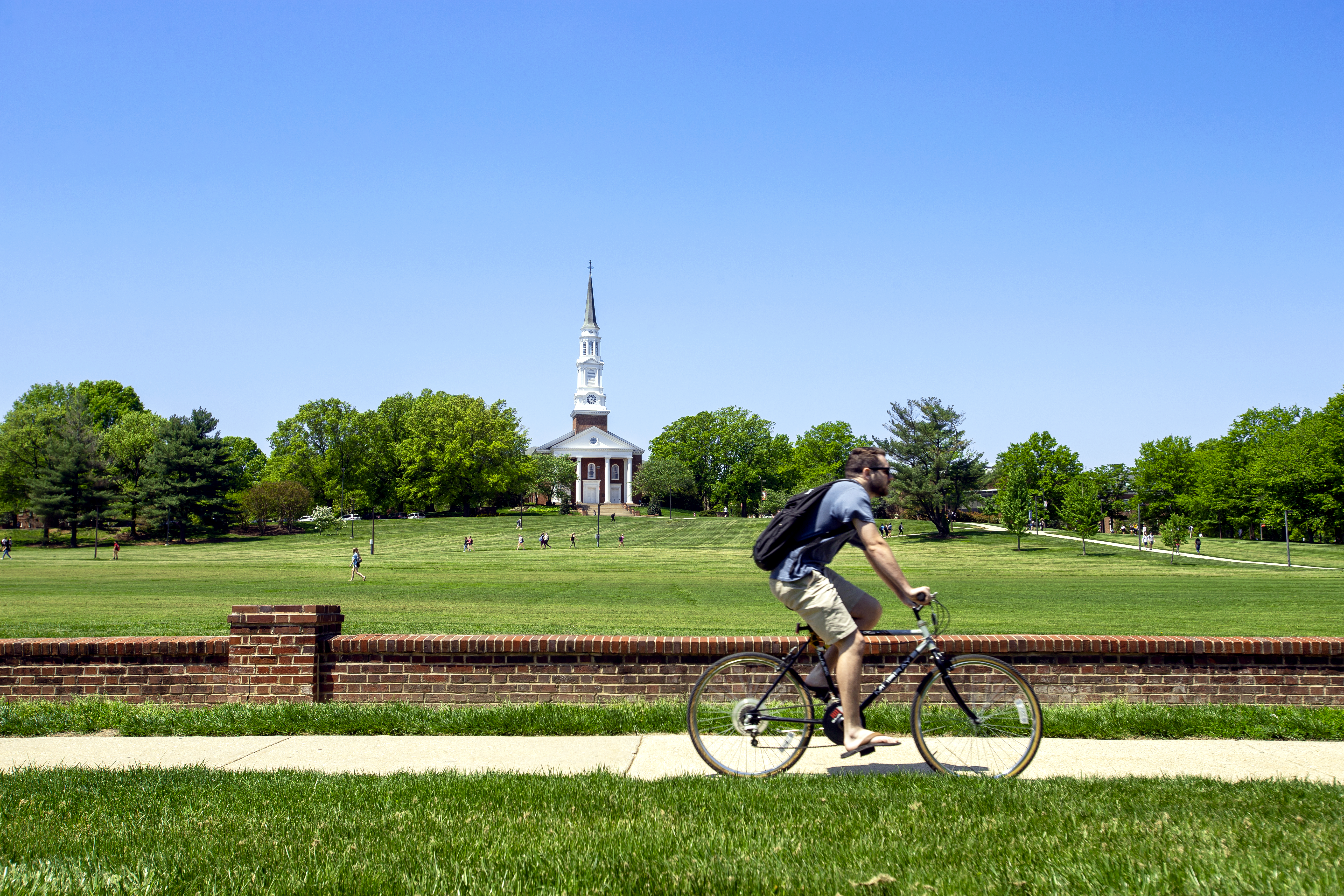
Biking
Biking programs on campus include rentable bikes, e-bikes & e-scooters, bike shop, and safety resources, managed by DOTS and RecWell. DOTS offers a Bike Commuter Incentive Program and Rainy Day Bike Rewards as incentives for bicycle commuters. Through the Bicycle Recycle Program collects abandoned or donated bikes which are repaired and sold at a discount at the annual DOTS Transportation Fair.
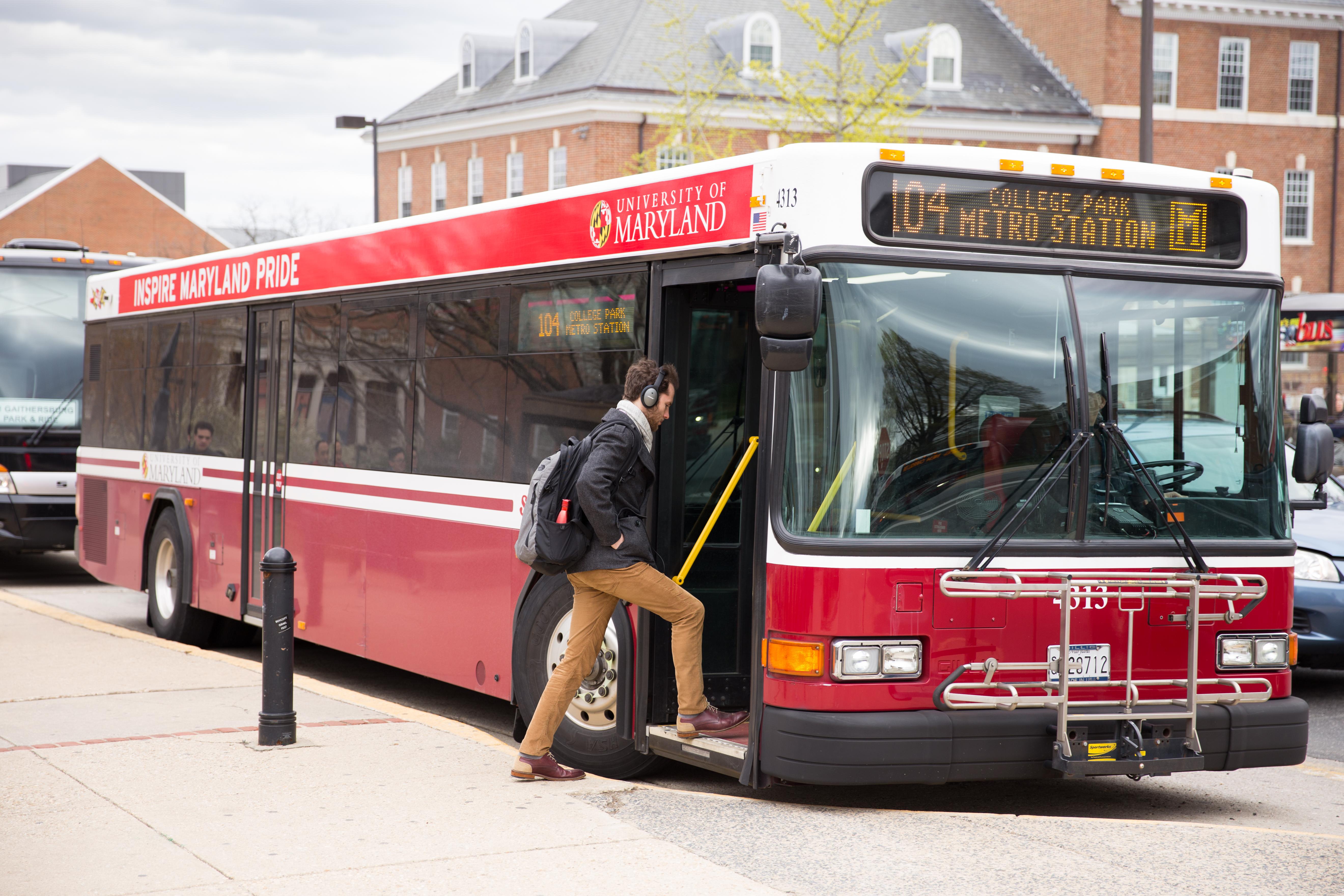
Shuttle-UM
Shuttle-UM has many fare-free routes that connect the campus and the surrounding communities- providing over three million rides a year with a fleet that includes hybrid and clean diesel bus models. Download Transit, the official app of Shuttle-UM, to view routes, see real-time arrival information, and take advantage of multimodal trip planning tools.
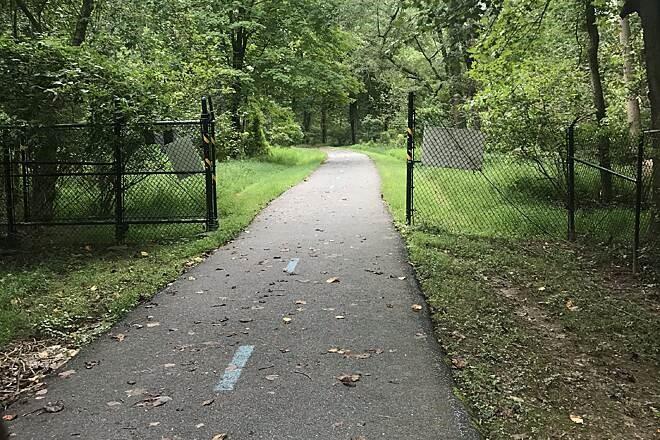
Walk via paths & trails
Skip the traffic altogether by traveling on the many safe and shady trails and paths that winding throughout College Park. These paths connect bicyclists and pedestrians to the surrounding region and serve as peaceful and energizing alternatives to busy roadways.
Drive Sustainably
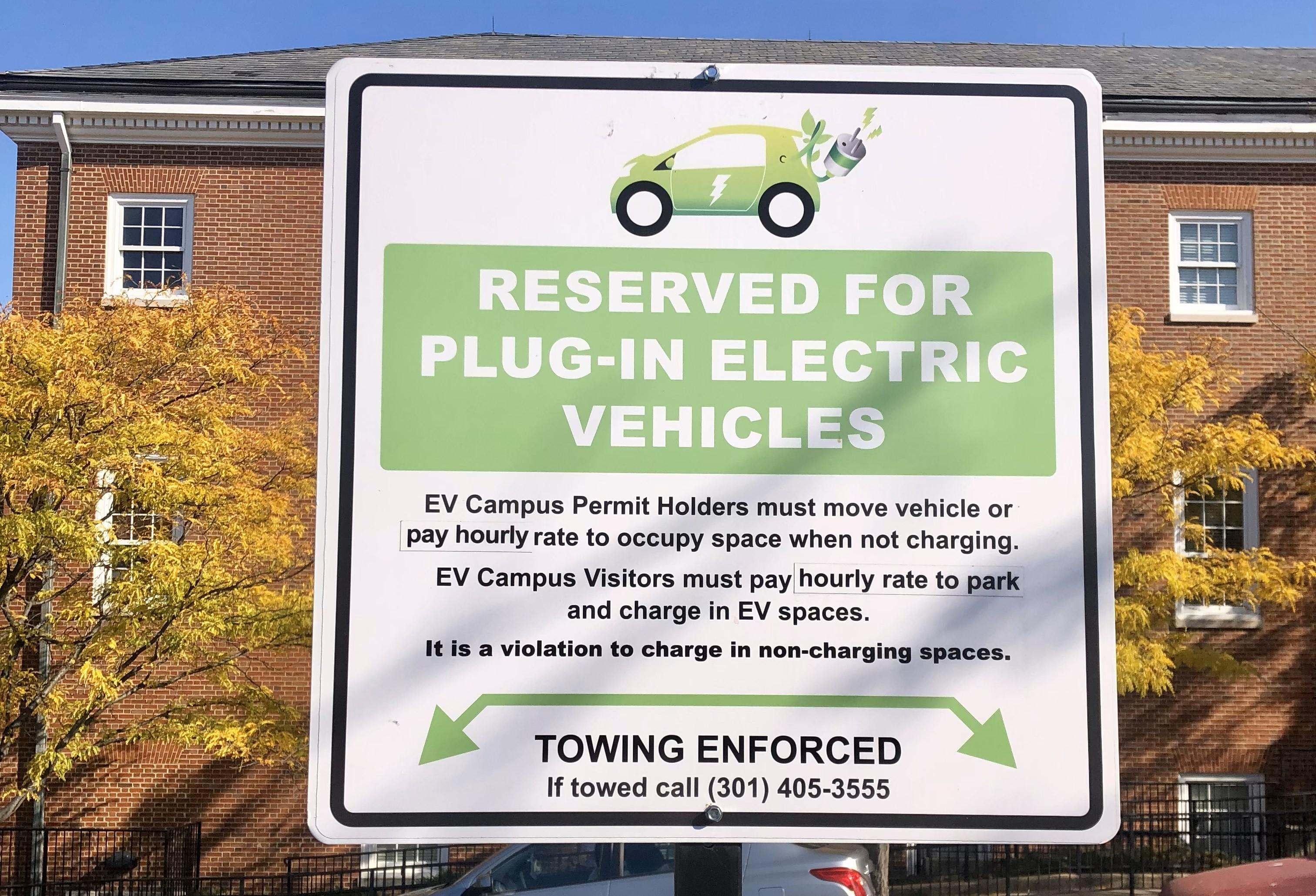
Electric Vehicle Charging
Over a dozen electric vehicle charging stations are open to the public in visitor lots. Use the Blink Charging App to access a map with the location of all 39 charging stations located on Level 2 garages. At only $0.20 per kilowatt hour, students can save money charging their electric vehicles when compared to the prices of traditional gasoline fuel.
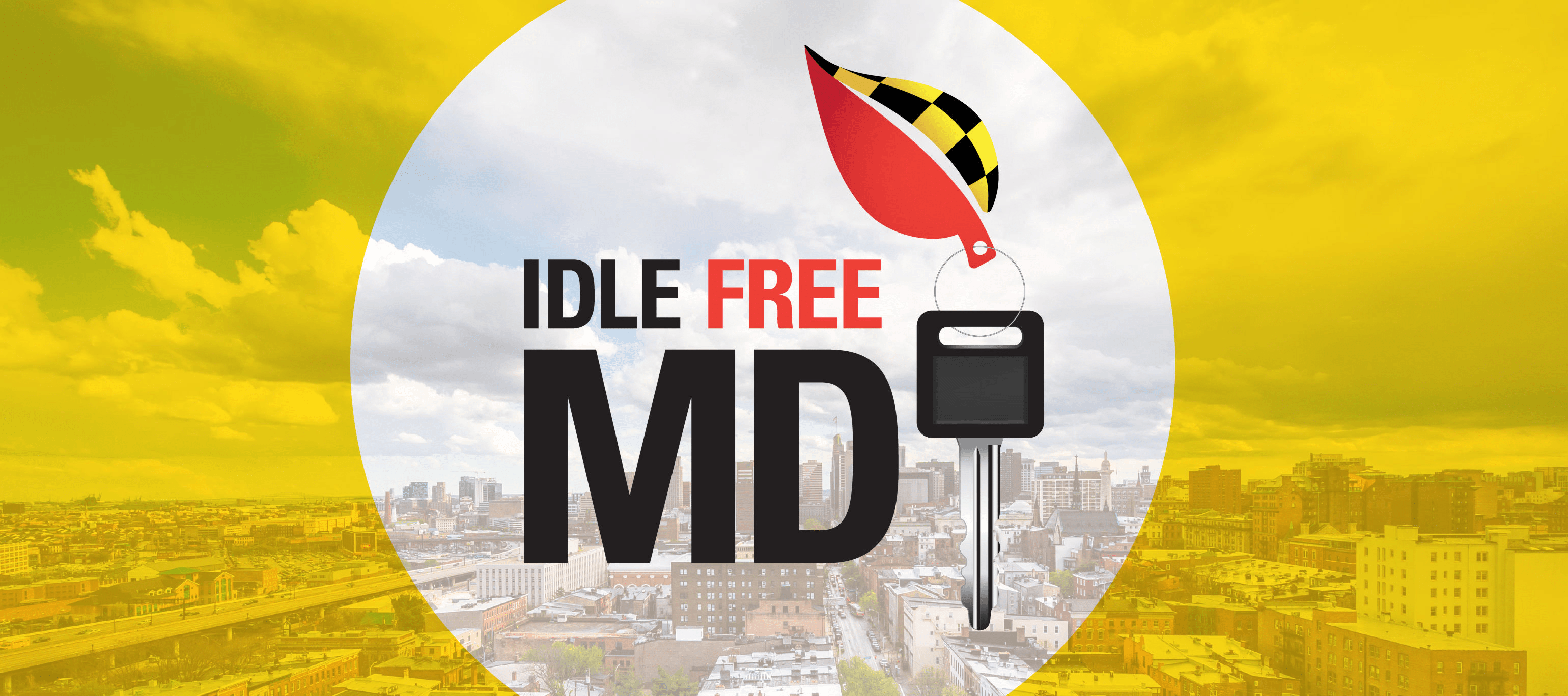
Idle-Free UMD
All of us can play a part in helping to keep our air clean. In Maryland, you’re not legally allowed to idle longer than five minutes, yet engines benefit from being turned off after 10 seconds. Idling emits carbon dioxide and other pollutants such as particulate matter, nitrogen oxide, and carbon monoxide into the atmosphere. This pollution contributes to ozone, regional haze and can even aggravate asthma and allergies. The less you idle, the better it is for your health, the planet, your car, and your wallet!


